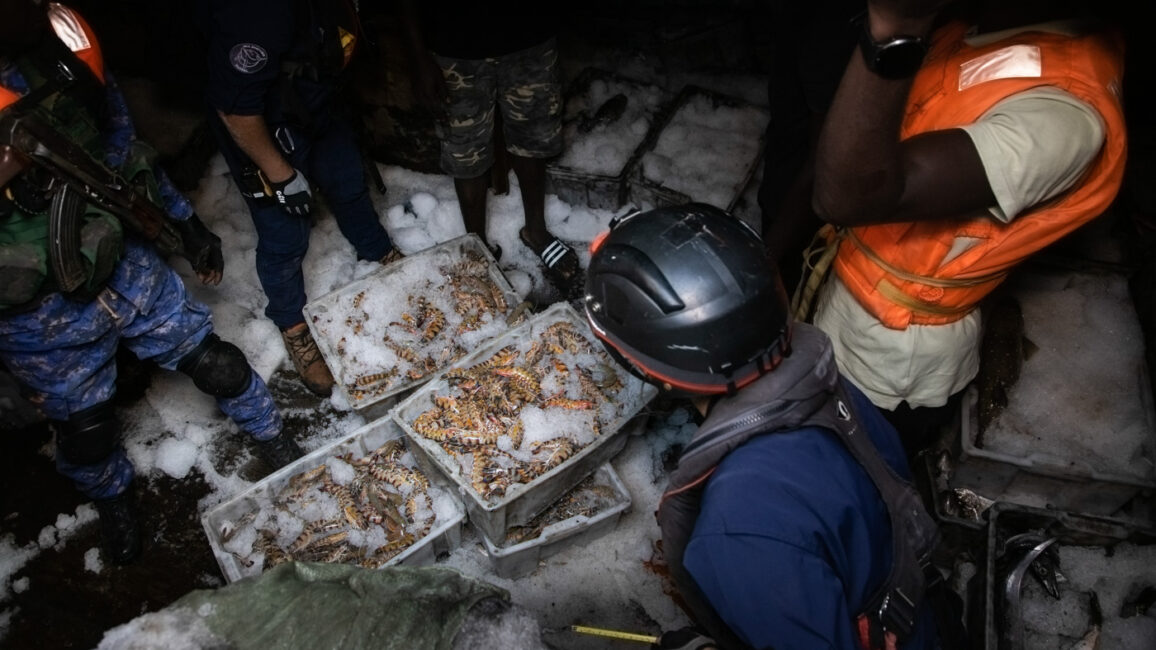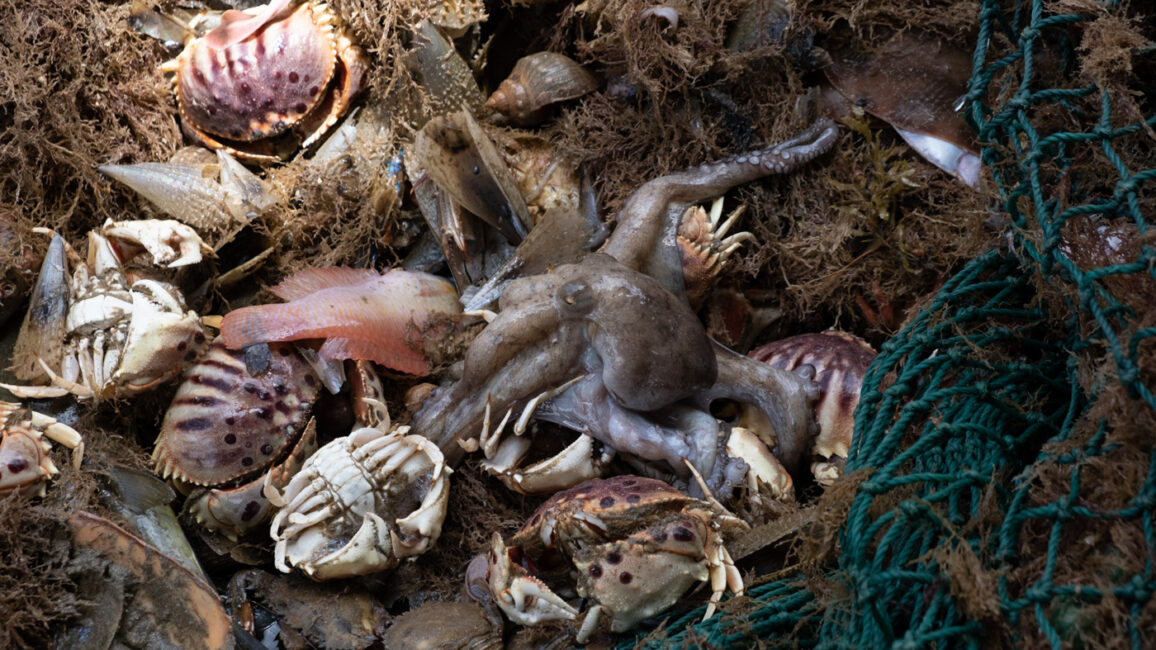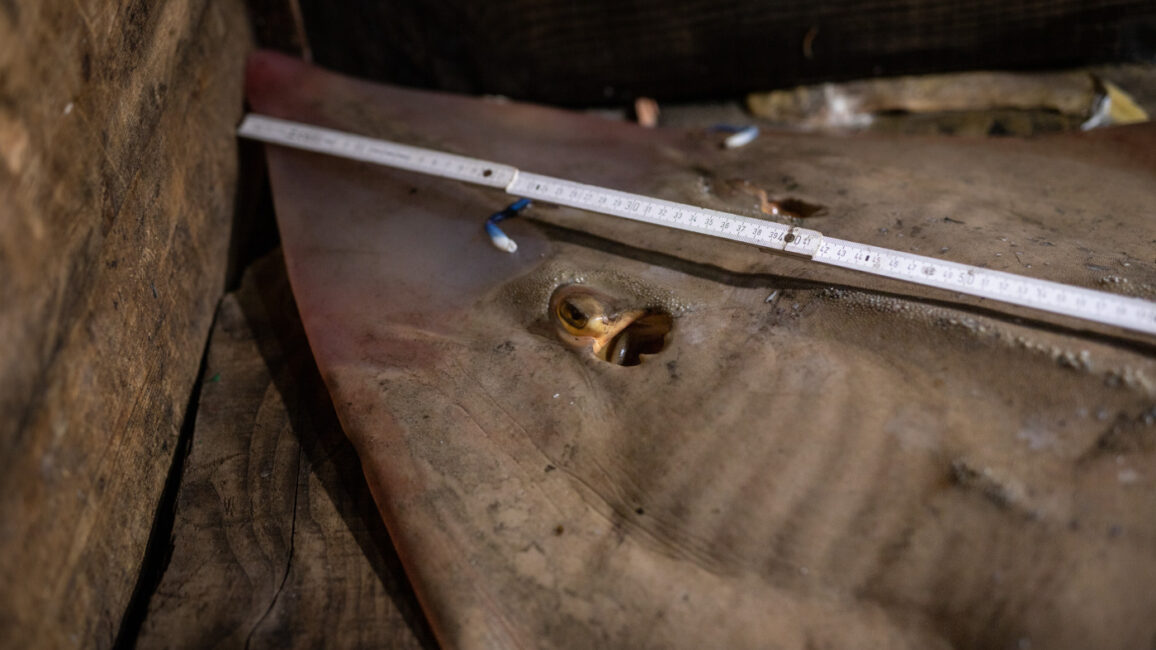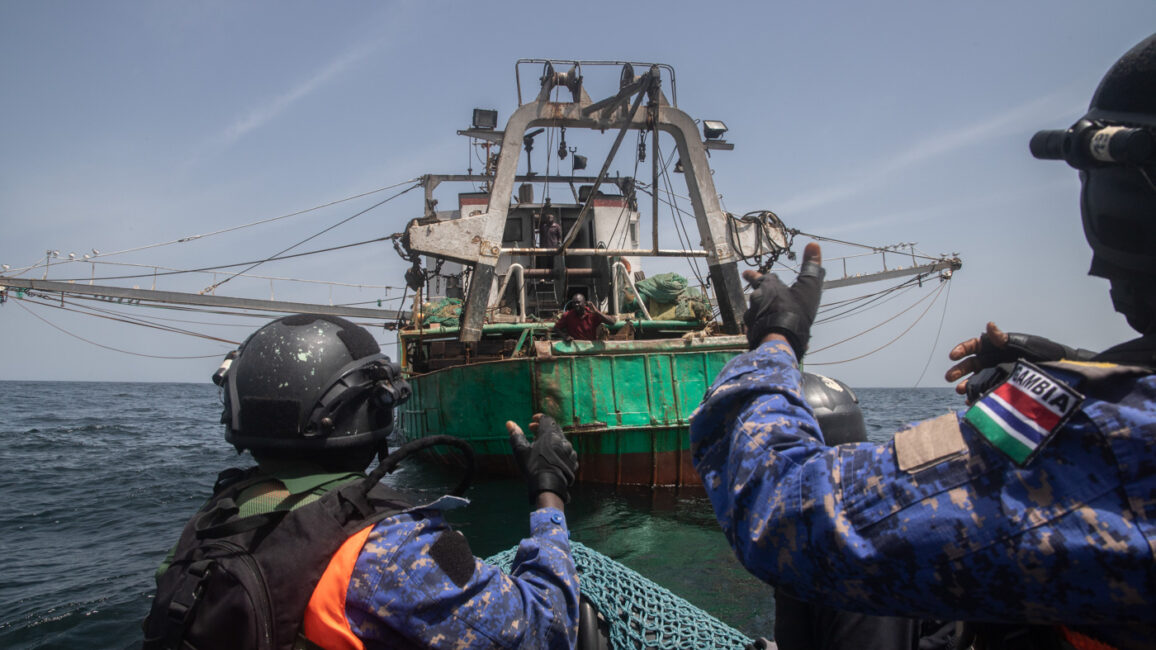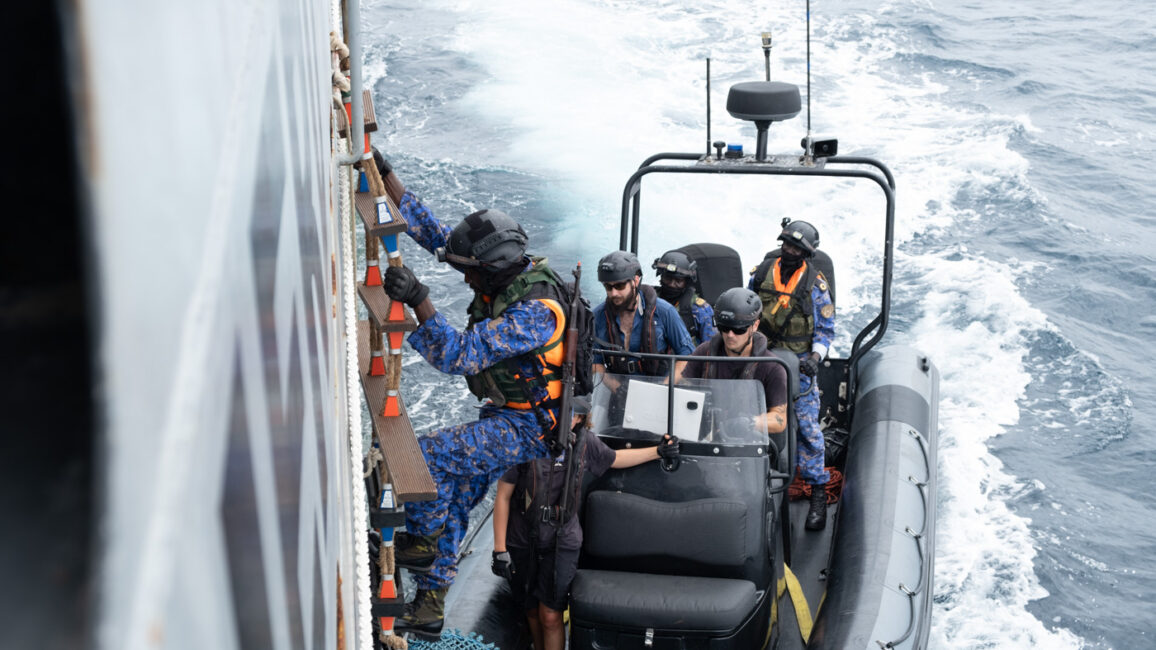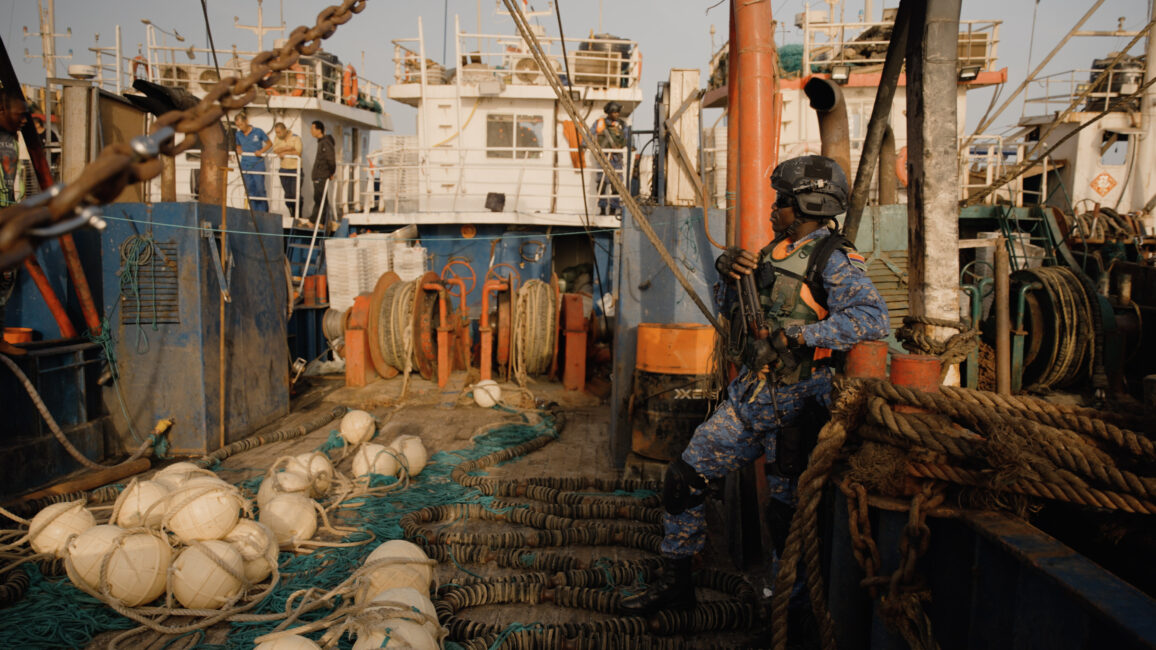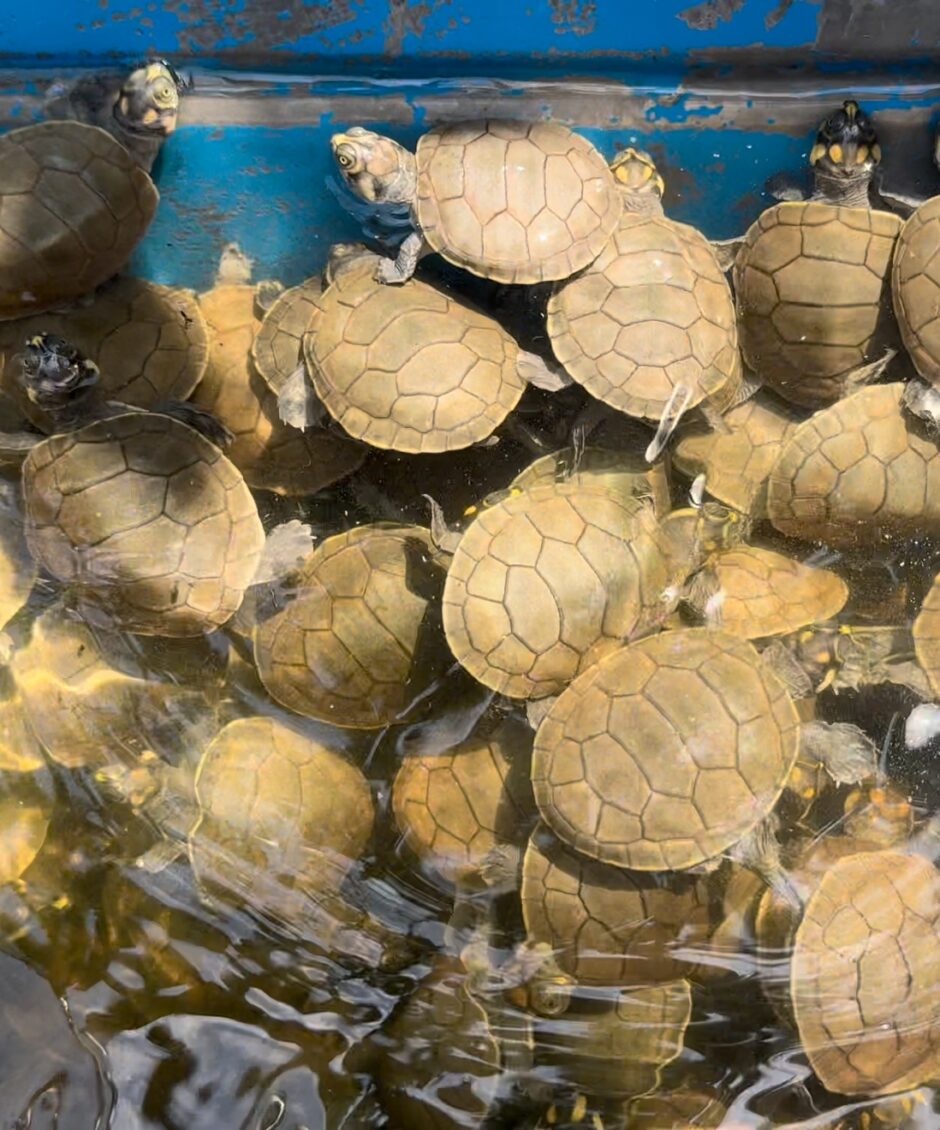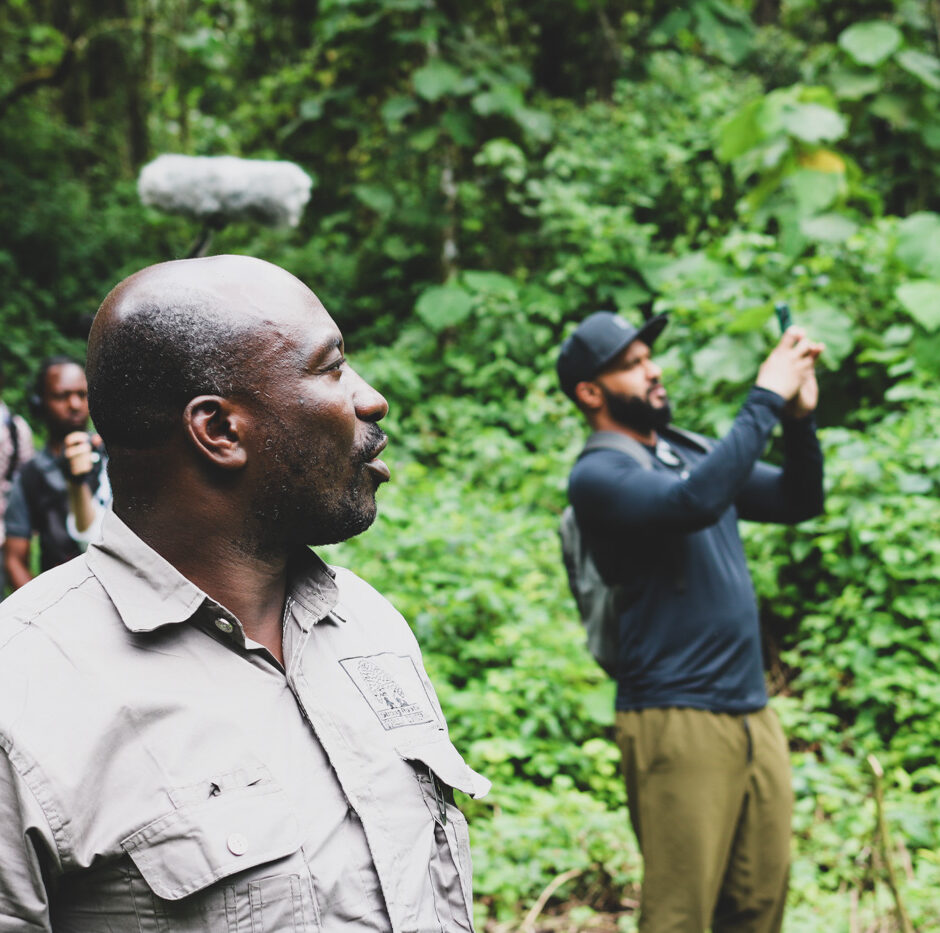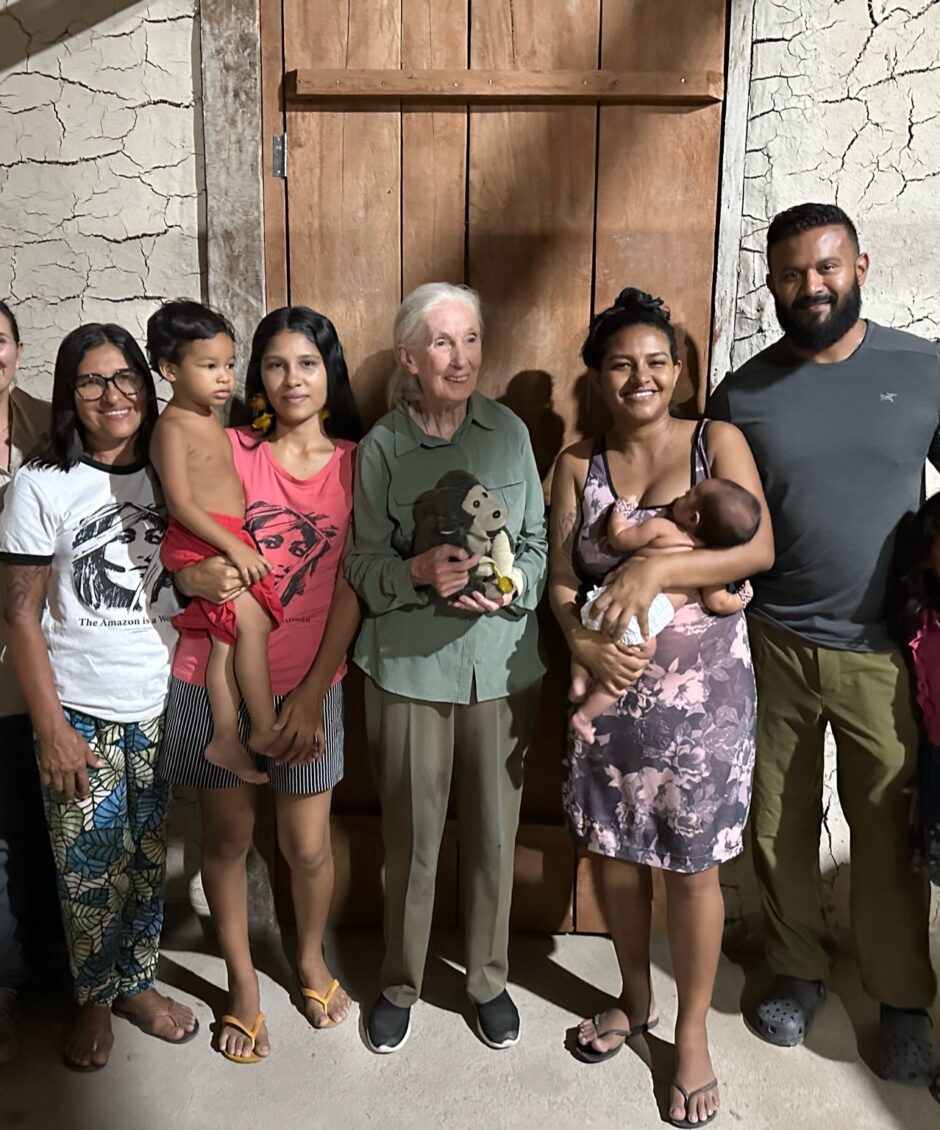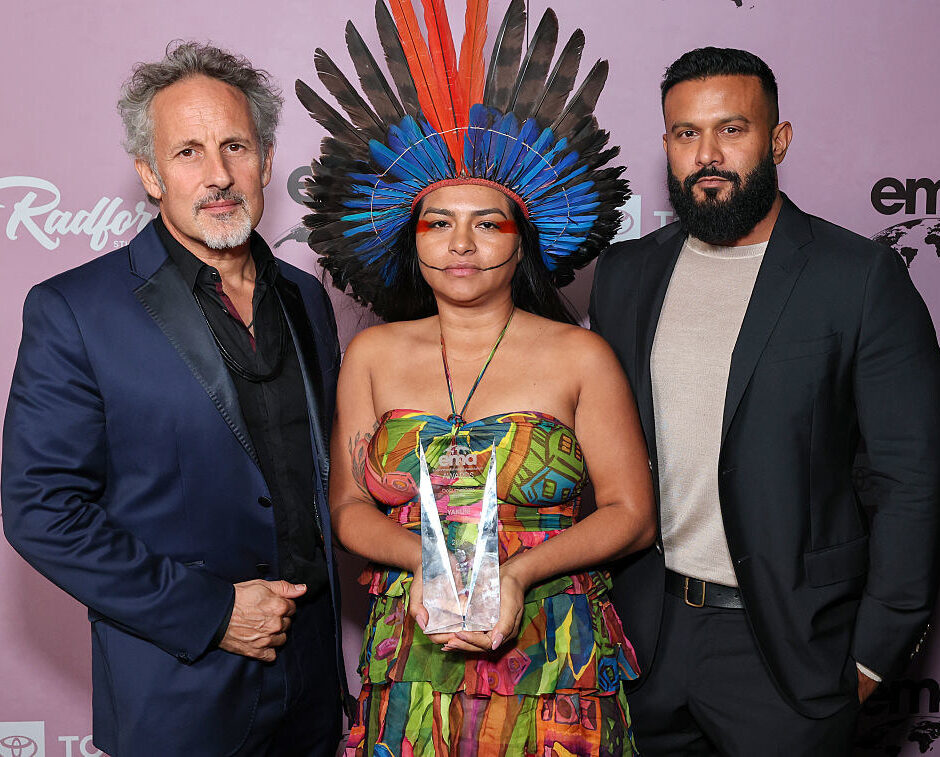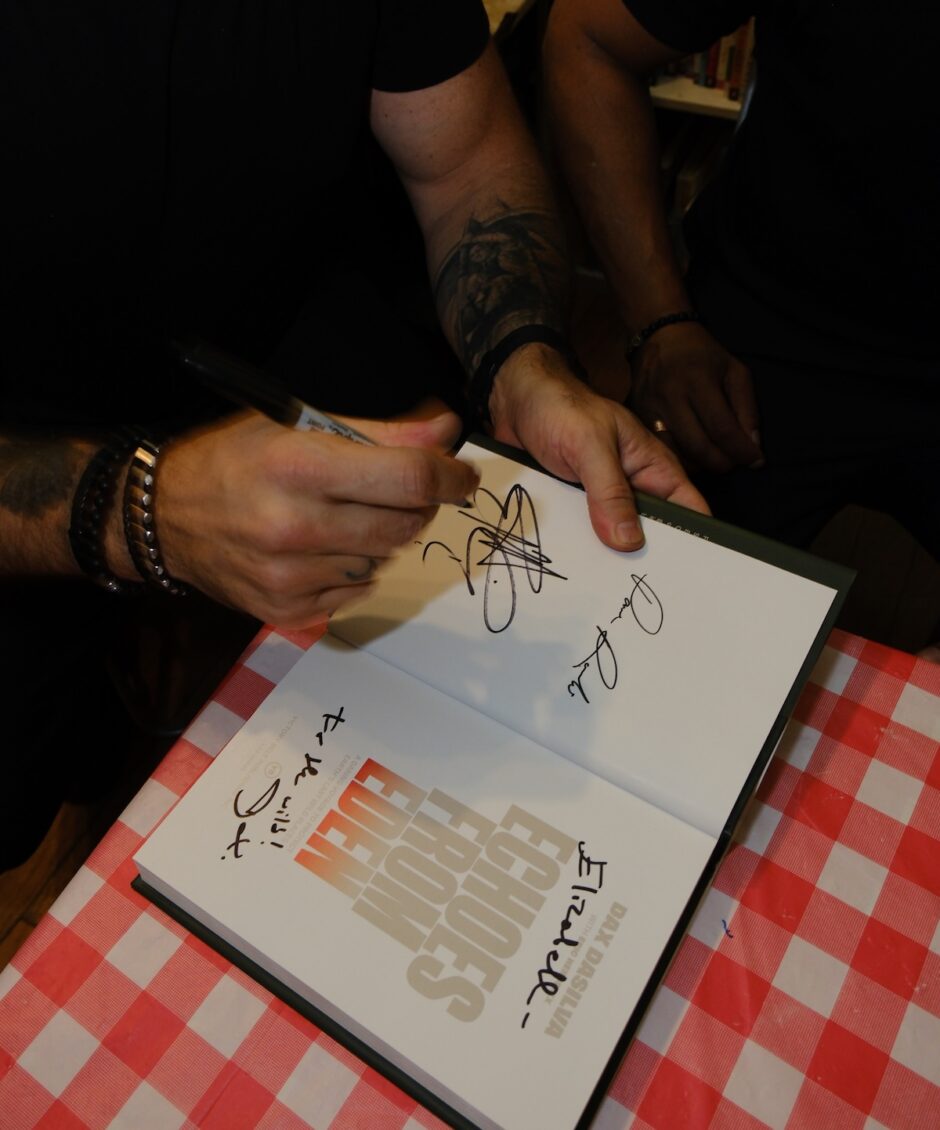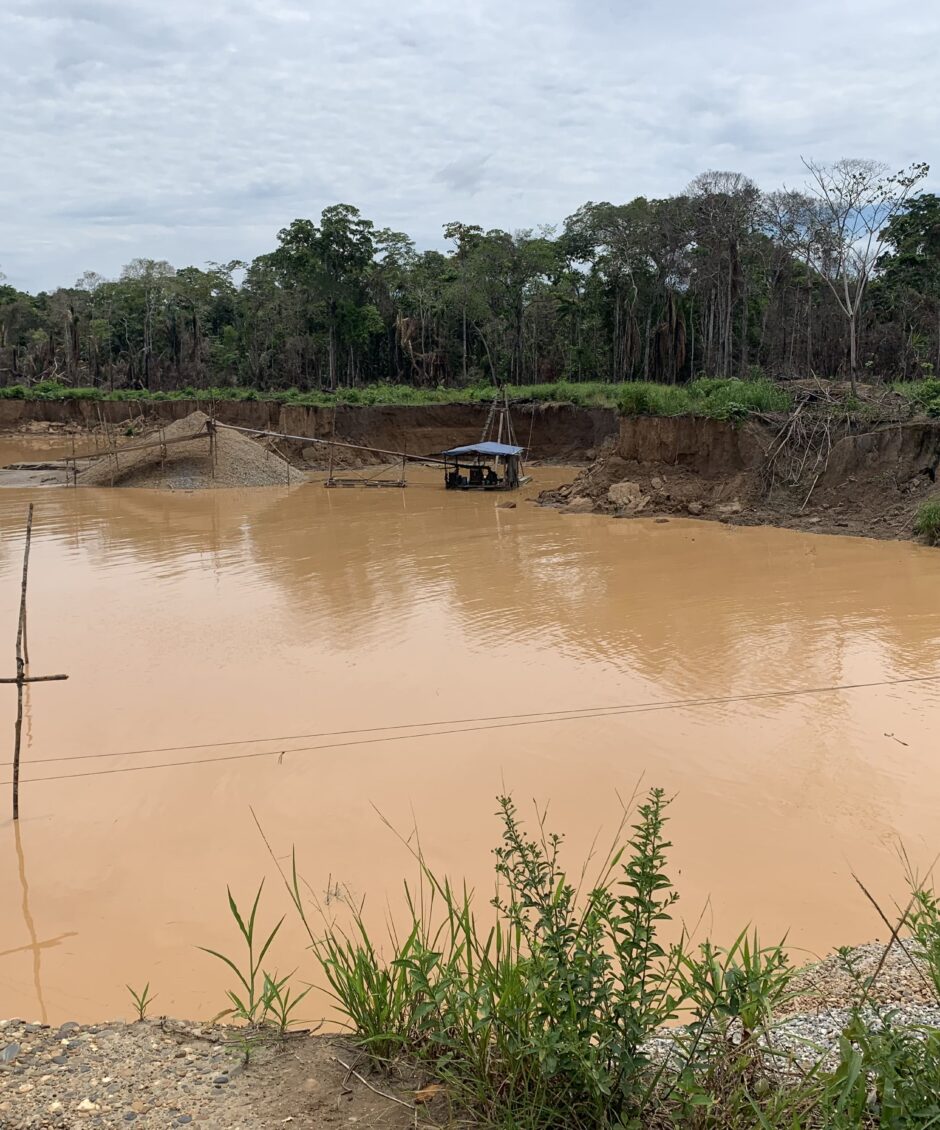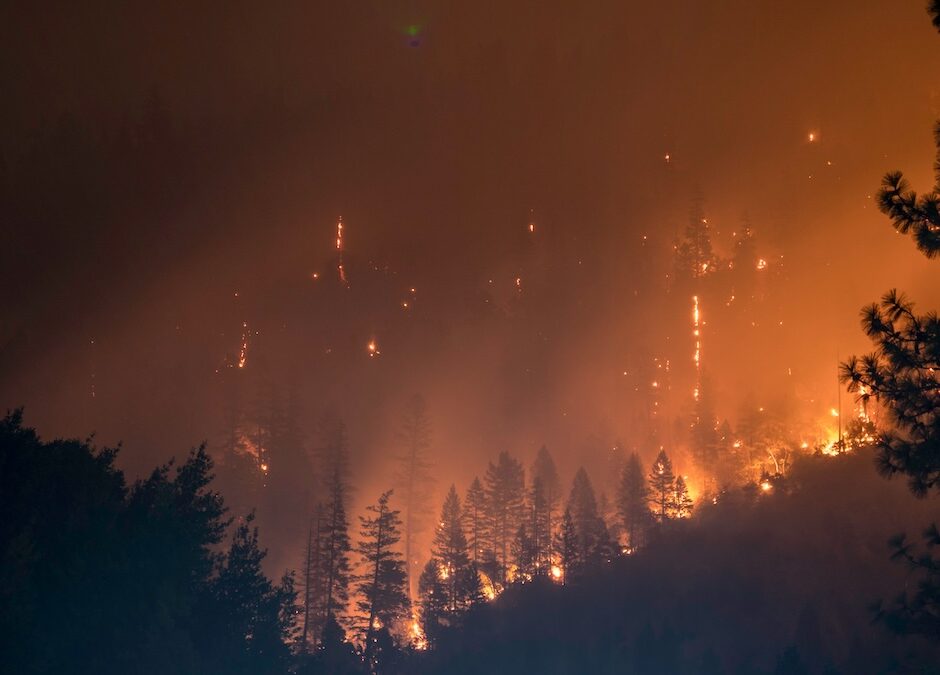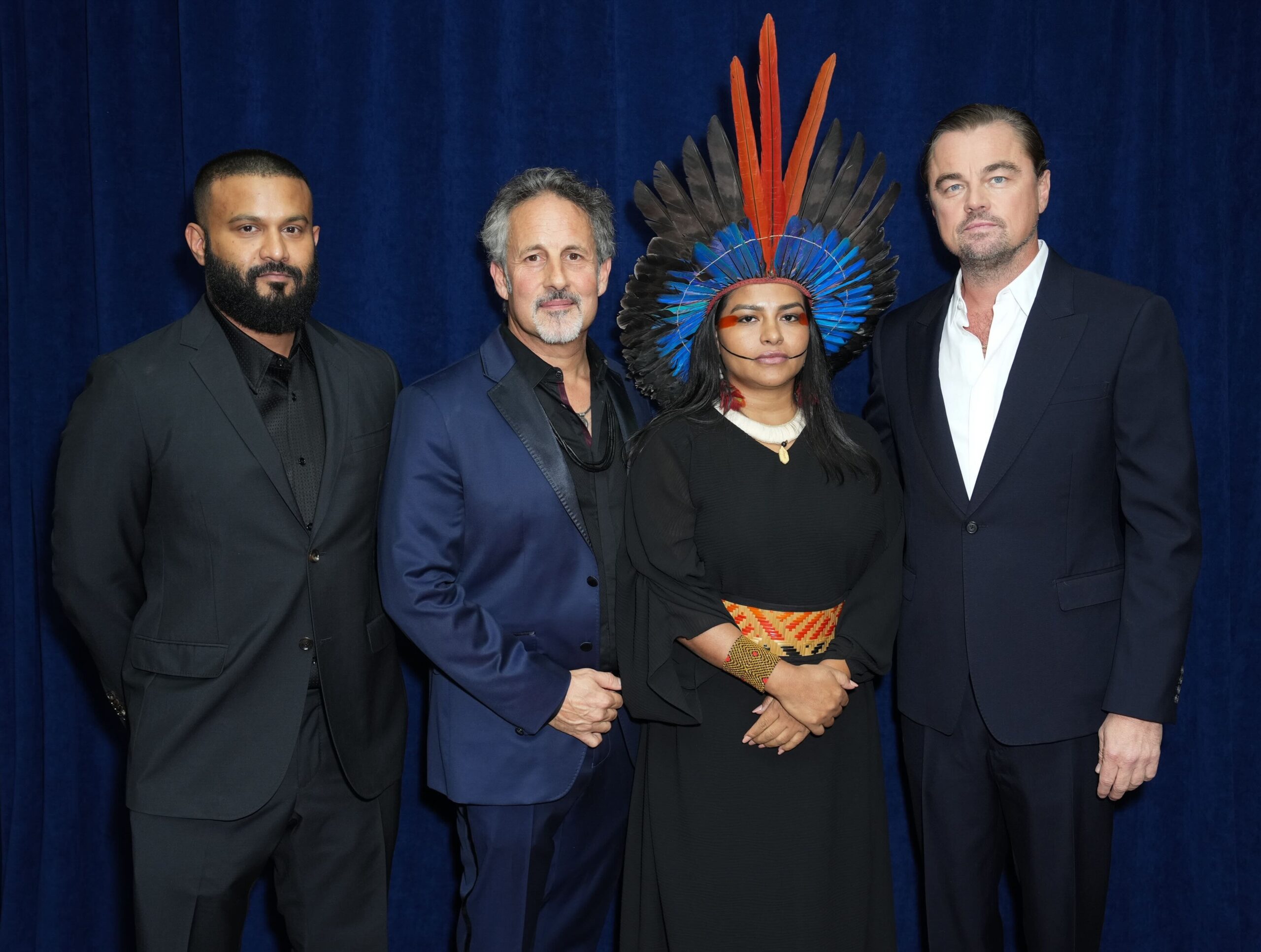Inside the Fight to Protect Gambian Artisanal Fishermen and Biodiversity From Industrialized Fishing
Article
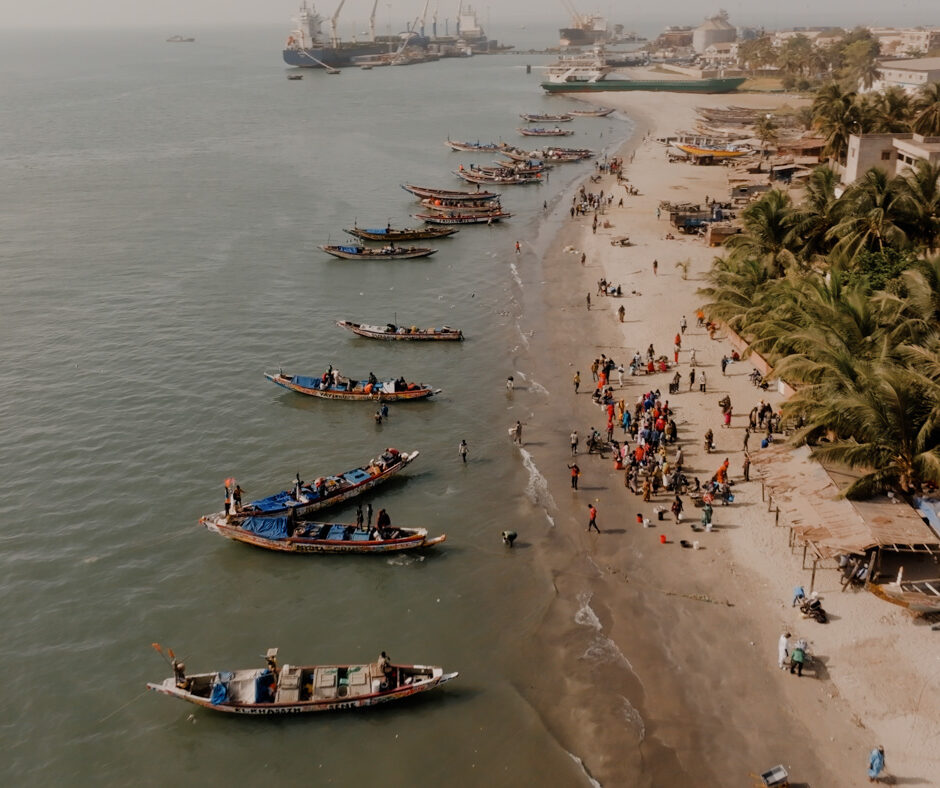
In 2021, Sea Shepherd Global partnered with Age of Union to operate the 56-metre M/Y Age of Union vessel, patrolling the coasts of West Africa. Sea Shepherd Global conducts multiple missions with the vessel to combat illegal, unreported, and unregulated (IUU) fishing and to expose harmful legal fishing practices that contribute to bycatch and overfishing. Each mission is part of a broader campaign, such as Operation Gambian Coastal Defense in The Gambia.
Author
Mariette Raina
Topics
A high-stakes battle is unfolding in Gambian waters as artisanal fishermen fight to protect their livelihoods from industrial fishing fleets—predominantly operated by non-Gambians—that are depleting fish stocks through illegal and destructive methods. With more than 300,000 Gambians depending on fishing for their daily protein intake, according to The Gambia’s Ministry of Fisheries & Water Resources (MoFWR), illegal, unreported, and unregulated (IUU) fishing poses a dire threat to both coastal communities and the country’s marine biodiversity.
In response, Operation Gambian Coastal Defense, a joint initiative between The Gambia’s government and Age of Union partner Sea Shepherd Global, is intensifying patrols to safeguard waters legally reserved for small-scale fishers.
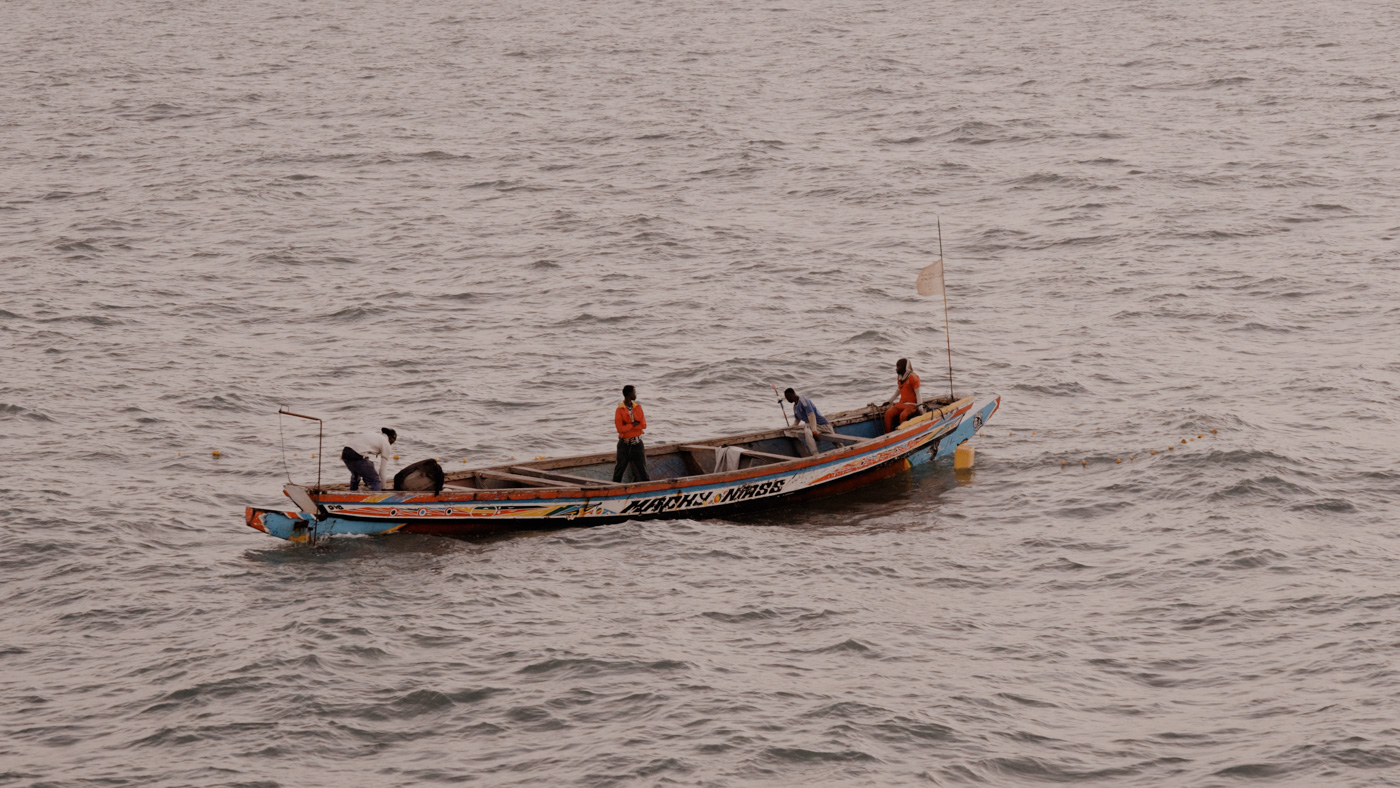
Industrial Fishing Puts Gambia’s Small-Scale Fishermen at Risk
“Malpractice by certain actors in the fishing industry is harming the environment and undermining people’s livelihoods,” explains Samira Daoud, Regional Director for West and Central Africa for Amnesty International. “The Gambian authorities must urgently take all necessary steps to hold them to account and protect the human rights of affected communities, including their economic and social rights.”
Artisanal fishing is a cornerstone of Gambian coastal life, providing income to countless families and supplying food both locally and globally. Women play a particularly vital role in seafood processing, ensuring the industry’s sustainability and economic impact. According to the Enhanced Integrated Framework (EIF), “the average Gambian eats around 29 kilograms of fish every year, exceeding the world average of 20 kilograms.”
Unlike industrial operations, artisanal fishing—also called small-scale fishing—relies on environmentally sustainable methods that respect the ecosystem, using smaller boats, lower-tech gear, shorter trips, and modest catches. However, industrial trawlers, armed with massive nets and advanced technology, have increasingly invaded protected waters. Their encroachment has led to severe depletion of local fish stocks, widespread environmental damage, and disruption of delicate marine ecosystems, threatening species essential to biodiversity.
As fish populations decline, artisanal fishermen are forced to travel farther offshore, increasing their fuel costs, financial burden, and personal safety risks. “With declining fish stocks in the Atlantic, artisanal fishermen are forced to travel very far to fish,” said Sea Shepherd Fisheries Inspector Alexander Ramos. “Today, we found small boats, and fishermen told me they now have to go 50 to 70 nautical miles just to find fish. When they arrive, they may return home empty-handed.”
The environmental toll is equally devastating. “Unsustainable industrial fishing is destroying habitats and endangering countless species,” warns Greenpeace. “Overfishing and bycatch kill about 63 billion pounds of marine animals every year.” Overfishing is rapidly reducing key species faster than they can replenish.
Bycatch—the unintentional capture of sea turtles, sharks, dolphins, and juvenile fish—remains a major issue, with many discarded at sea, often dead. Heavy trawling equipment also destroys coral reefs and seagrass beds, further destabilizing marine ecosystems.
Operation Gambian Coastal Defense: Fighting Back Against Illegal Fishing
On March 8, 2024, armed maritime units from the Gambian Navy, deployed from the patrol vessel M/Y Age of Union, arrested eight industrial trawlers. Authorities charged the vessels with fishing inside protected waters, operating without valid licenses, using undersized mesh nets, and misreporting their catch.
The Gambia Navy and Sea Shepherd regularly patrol a nine-nautical-mile Special Management Area aboard the M/Y Age of Union, intercepting trawlers that violate conservation laws. Since partnering up with the organization in 2019, Gambian authorities have arrested numbers of vessels for fisheries violations, leading to fines, vessel seizures, and a decline in illegal incursions.
“The success of these arrests is proof of how important this partnership is,” says Sea Shepherd Global. “Our collaboration with the Gambian government highlights the importance of protecting marine resources and supporting the communities that depend on them.”
We’ve made progress, but the fight is not over
Despite increased enforcement, illegal fleets continue to find ways to operate, often using evasive tactics to avoid patrols. Arrests alone are not enough—there is an urgent need for stronger licensing laws, better monitoring technology, and harsher penalties for repeat offenders. “The Gambia has enforced mesh size requirements to allow undersized and juvenile fish to escape, helping to conserve fish populations and mitigate overfishing,” explains Sergio Carlos, M/Y Age of Union Captain.
However, the long-term impact of these enforcement actions is still unfolding. Authorities report a decrease in trawlers operating in restricted zones, but ongoing efforts are essential. Continuous patrols, law enforcement, collaboration with local communities, and joint operations with the navy remain critical to protecting the country’s marine resources and safeguarding coastal livelihoods.
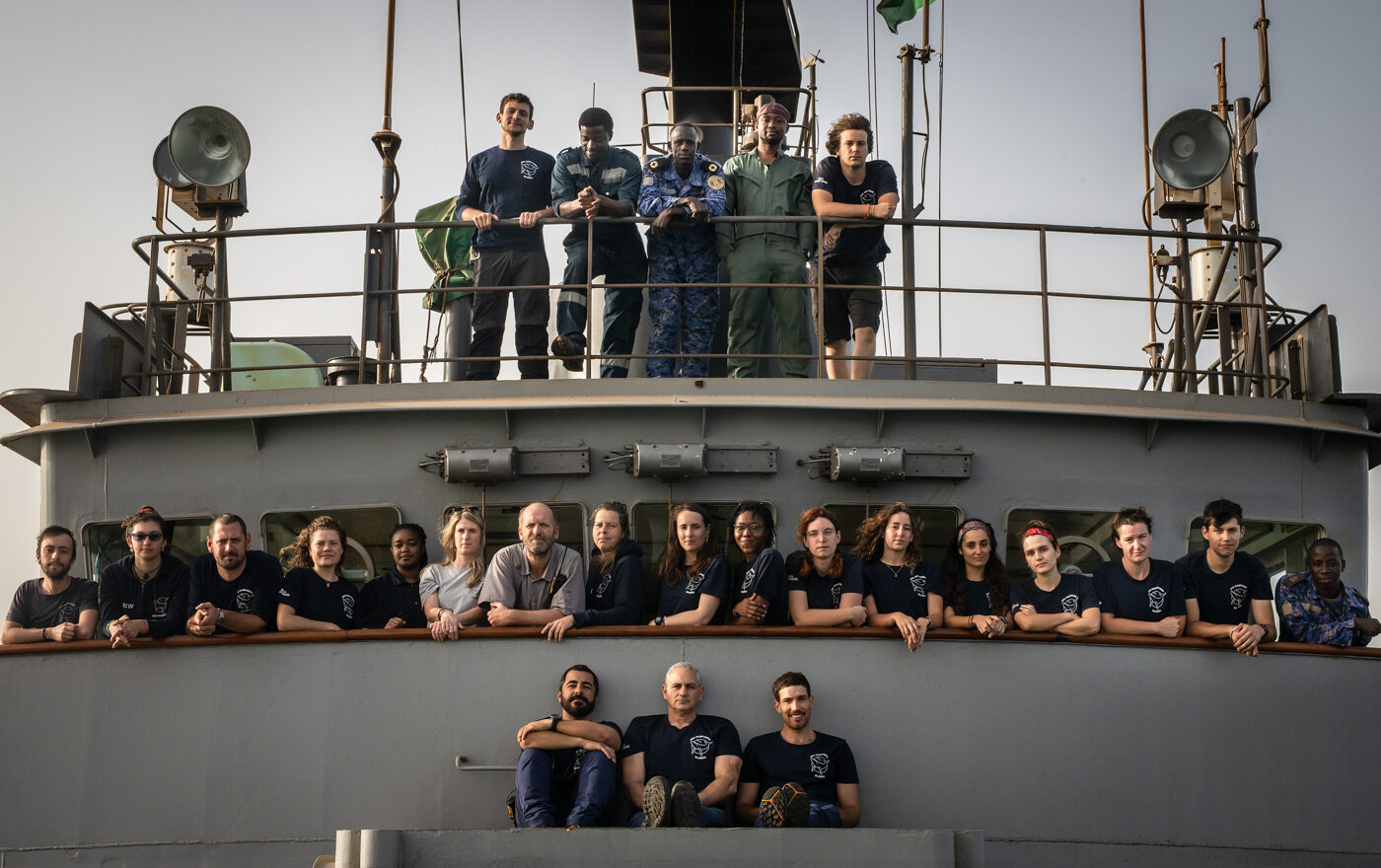
Resources
- The Gambia Ministry of Fisheries and Water Resources
- Artisanal Fishing Zone Issues In The Republic Of The Gambia
- The Gambia: Devastating impact of overfishing on local communities
- In The Gambia, sustainable fishing a lifeline to economy under water
- What’s the difference between artisanal and industrial fishing?
- The Consequences of Overfishing in West Africa
Topics
Article written by
Mariette Raina
Mariette Raina writes articles discussing environmental, spiritual and artistic subjects. Mariette has a Master's degree in Anthropological studies and vast experience within the Fine Arts field. She has contributed to numerous projects for Dax Dasilva since 2016. She is currently Conservation Director at Age of Union.
Related
articles
Africa, Film
Filming for Impact: How Age of Union’s Documentary The Corridor Inspires Change
News, Project, South America
Age of Union Announces USD $287,000 Commitment to The Juma Institute for New Knowledge Centre and Amazon Rainforest Protection
Project
More articles
News
Age of Union Marks 4 Years of Global Conservation Wins As COP30 Commences in Brazil
News, Other
‘Echoes from Eden’ Book Tour Connects Readers to Urgent Stories of Conservation
Explainer, South America
In the Amazon, Gold Mining Leaves a Toxic Trail
America, Asia, News
What More Intense Wildfire Seasons Mean For People and the Planet
Film
